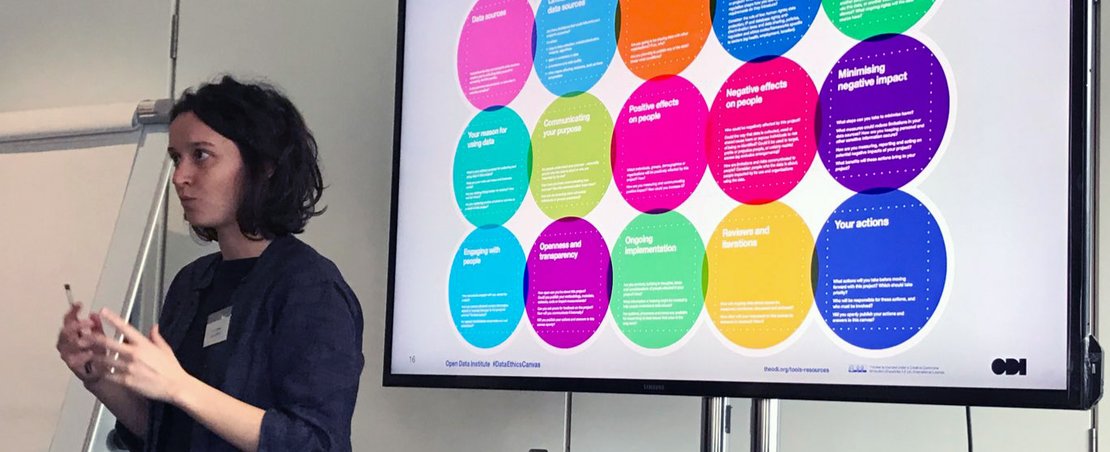
ODI trainer Violeta Mezeklieva has been running the ODI’s data ethics training workshop for a year, and shares what she’s learned from working with and helping people during the course
It's been a year since the ODI started offering a training course to encourage people to embed data ethics as a practice in their organisation. It's also been a year since I immersed myself in leading this training: listening to people reason through data ethics, helping teams challenge the decisions they made about their projects, and observing brilliant ’Aha’ moments. I've learnt a lot from people, and here are a few things I’ve learnt.
The following four themes are a constant in the feedback we received:
Data ethics is just part of everyday practice
People are surprised to realise that discussing their projects with an ethical lens is not as daunting as they had first imagined. In just one hour, teams are able to discuss decisions about collecting, sharing, and using data; identify the potential adverse impact on people and society; and come up with solutions to minimise negative impacts.
Data ethics is about asking the right questions
People on the course learn how to formulate questions that incentivise their teams to think about data ethics. For example, questions that challenge their ability to communicate the purpose of the project; engage a diverse group of users; and be open and transparent about the direction and outcomes of the project with the users. A key question that most often sparks the challenge is: ‘What do we fear appearing in the tabloids?’" – that gets people thinking!
Data ethics gets you thinking about your customers and users
People realise that if the value in what they are creating is designed with the customer in mind, they can be creative with the solutions they offer. In particular, that designing for a global user is often not the best approach as this ignores the diversity in cultural practices and values of the people they are providing a service to.
Data ethics is about people
Use cases offered in the course often spark lively discussion –especially when a person's morals differ from the ethical decisions made by the community. This distinction is especially important for teams to see the differences in people's perspectives about a service they were designing collaboratively, and challenged them to think of solutions that worked for everyone.
What do people do next, after the course?
We often hear back from organisations wanting more guidance for when and how to implement the Data Ethics Canvas. My recommendation so far has been to host an internal workshop that uses a Data Ethics Canvas at the time when there is a general review of the project or product development. This is because if the workshop is already embedded into the timeline, teams won't see this as an additional step rather a seamless process that is part of the natural course of the product development or project.
We’ve had a number of organisations contact us asking for additional workshop sessions, internal training on data ethics, and a few started asking if we can help them design a Data Ethics Canvas for their organisation. There is an interest in wanting to understand 'where data ethics fits' and there is no direct answer because changing the organisational culture is not a simple and fast task. It takes trial and error to learn where this process best fits in.
Read how the Data Ethics Canvas as helped Co-op to build trust from their customers
Get involved
If you are interested and want to see the impact of using the Data Ethics Canvas, then pick up a copy, bring it to any meeting you have, use the questions we have suggested and modify them to meet your needs, and slowly start thinking when is it most appropriate to hold an internal workshop using the Data Ethics Canvas as the prompt.
When you are ready, contact us below for a session on data ethics and help you run the data ethics workshop using a use case that is most relevant to your team, and let's see where this takes us. So far, the feedback we've received has been positive - encouraging us to continue to reiterate and improve!
View our toolkit, including the Data Ethics Canvas
Read our Covid-19 specific guide on Identifying and managing ethical issues around data